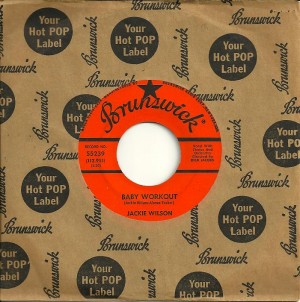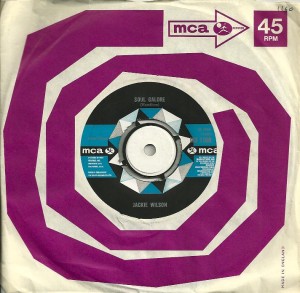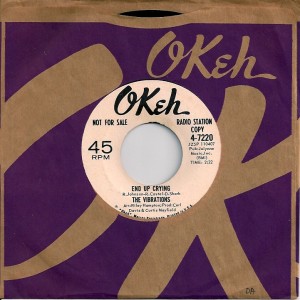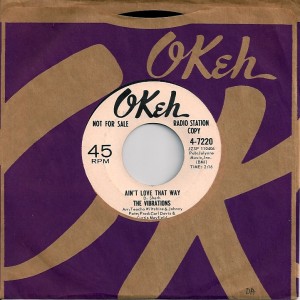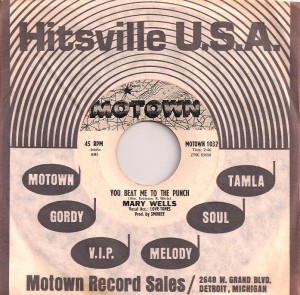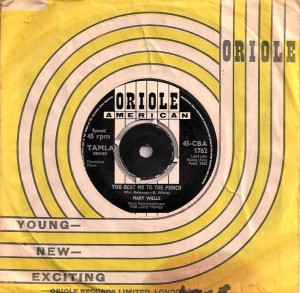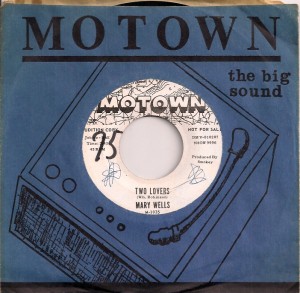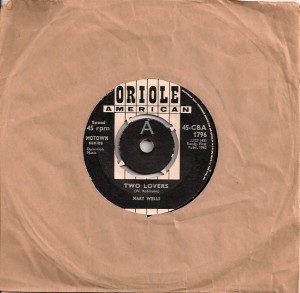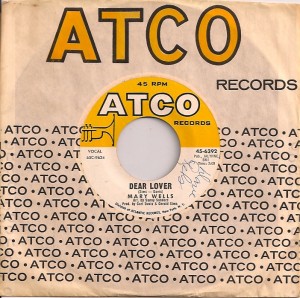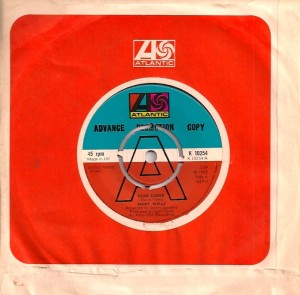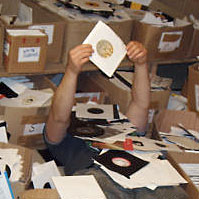Listen: Baby Workout / Jackie Wilson
Baby
It’s strange how time has diminished the apparent power and originality once associated with Jackie Wilson.
Read Doug Carter’s THE BLACK ELVIS: JACKIE WILSON. You won’t be able to put it down, nor will you understand why he didn’t reach legendary status like those who credited him with their inspiration: Michael Jackson, James Brown and Elvis Presley for starters.
On stage, his knee drops, splits, spins, one footed across-the-floor slides became the blueprint from which they, and many others, lifted, crowning him Mr. Excitement. As a result of the book, I found myself trolling through a surprisingly large section of about thirty Jackie Wilson singles, involuntarily amassed through the years, sure that one day, I’d need them. Well that day arrived even before the book’s halfway mark. Didn’t take much to pull out and spin the pristine pressing, on original orange labelled Brunswick, of ‘Baby Workout’, a huge record in ’63 (#5 Pop). Workout being the giveaway word, this title held great potential. No let down there.
House producer Dick Jacobs, ann under appreciated band leader and executive, took responsibility for A&Ring many of Jackie Wilson’s records during the period. His clean, safe backing vocals and big orchestral arrangements, often dismissed and unfairly overlooked, actually helped to bring out the grit in both Jackie Wilson’s voice and songwriting. According to many, the combination of these two talents led to some of the earliest soul recordings, many becoming mainstream hits, like ‘Baby Workout’.
Listen: Soul Galore / Jackie Wilson
Soul
The post Dick Jacobs era resulted in Carl Davis being tasked the Jackie Wilson production responsibilities. One of their first works together, ‘Soul Galore’, got no traction upon release, somehow failing to pick up much airplay, even on the RnB stations. But by the early 70′s, it qualified as one of Jackie Wilson’s biggest Northern Soul successes, thereby being reissued, via the pressing pictured above.
Luckily, a very typical trait of Carl Davis’ was to consistently incorporate pumped up, brass arrangements into swinging soul songs, thereby helping give Jackie Wilson one of his biggest and ultimately final mainstream hits with ‘(Your Love Keeps Lifting Me) Higher and Higher’ a year or so later in ’67.
